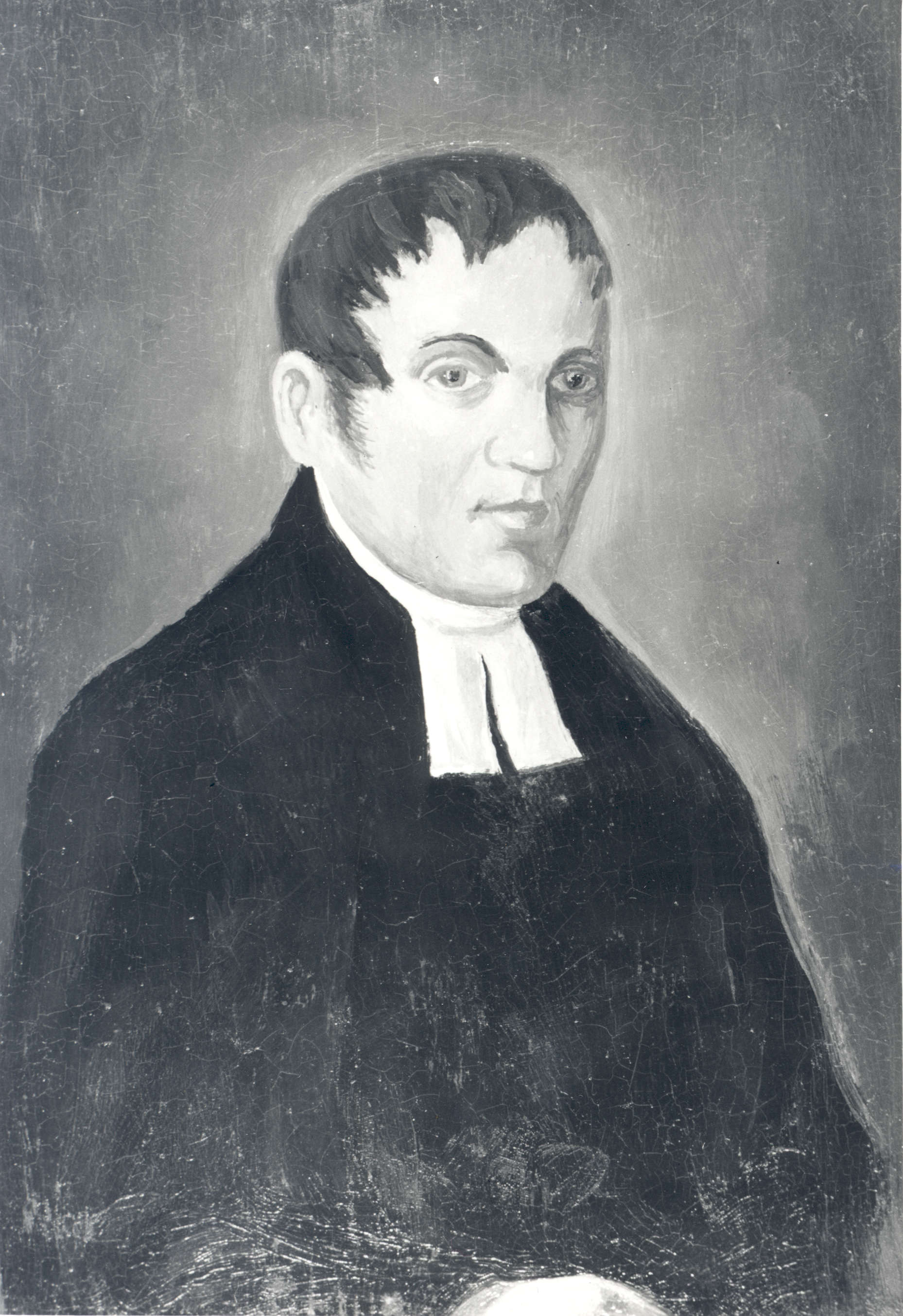
Johann Heinrich Rosenplänter
Johann Heinrich Rosenplänter (23./12. VII 1782 – 27./15. IV 1846) was an Estophile, evidently of German origin, one of the most important scholars of Estonian language and culture and promoters of popular education in the pre-Awakening period.
He was born at Valmiera (now in Latvia), the son of a postmaster. He was educated by private tutors, and also attended the Tallinn Gymnasium for about a year and about the same period the Riga Dome school. He lost his parents early and had to start working. At the age of 14, after his father’s death, he and his mother tried to run the large postal station, after that working as a tutor and primary school teacher and in Riga as a court clerk. From 1803 to 1806 he studied theology at the University of Tartu, from 1808 to 1809 he was a pastor at Tori, and from 1809 to 1846 of the Elisabeth congregation in Pärnu. He is buried in Alevi cemetery in Pärnu.
Rosenplänter’s activity in educating the Estonian serfs and in promoting their language and national culture was inspired by the ideas of Rationalism and Romanticism, primarily from J.G. Herder. The activity was also helped by the improvement in the legal position of the local peasantry at the beginning of the 19th century, initially by the abolition of serfdom in Estonia in 1816 and Livonia in 1819. Studying, working and living in Estonia, Rosenplänter worked primarily in the interests of the Estonian language and folklore, but, since he came from Valmiera, he also knew Latvian and to a considerable extent strove also for the Latvian language and culture.
Rosenplänter’s chief merit is considered to be the founding of the journal Beiträge zur genaueren Kenntniss der ehstnischen Sprache (‘Contributions to the better knowledge of the Estonian language’) and its maintenance from 1813 to 1832. Twenty issues of the journal appeared (altogether over 3,500 pages). The Beiträge – the first scientific periodical on an Estonian topic – was aimed at Germans who were studying Estonian or came into daily contact with their parishioners as pastors. Although the circulation of the journal was very small (74 subscribers in its best years), the Beiträge played a decisive part in bringing together the pioneering work of Estophiles of the pre-Awakening period and developing productive discussion between them. The journal was also read in Finland and Sweden. The first at least partly native Estonian intellectuals, such as O.W. Masing and Kristian Jaak Peterson, appeared in it. Masing became Rosenplänter’s chief ally in activities for the Estonian language. Rosenplänter did not publish K.J. Peterson’s poems, but thanks to him they were preserved for future generations, as were the manuscripts of a large number of pre-Awakening literary figures.
Rosenplänter influenced the development of the Estonian literary language, defending in his journal the creation of a literary language based on the North Estonian dialects, and campaigning against efforts to create it on the basis of South Estonian or to shape the literary language as a hybrid of the North and South Estonian languages. The Beiträge shaped the basis of Estonian poetic usage, literary criticism and folklore studies. In addition to the articles in German there were numerous texts in Estonian in the Beiträge – vocabulary, folklore, poems, translations. The first anthology of Estonian poetry, Lillikessed I (‘Posies I’, 1814) was compiled by Rosenplänter mainly from contributions to the Beiträge. Rosenplänter’s efforts to create a journal similar to Beiträge dedicated to Latvian did not bear fruit.
Besides editing Beiträge, Rosenplänter established a school for schoolmasters in 1814 and wrote a reader (1823). Evidently with Rosenplänter’s participation, the first theatre performances in Estonian took place in Pärnu from 1816 to 1829. Rosenplänter maintained close contact with his school’s pupils and confirmands, who collected folklore for Rosenplänter, and many of whom went on later to become prominent intellectuals. Rosenplänter was one of the first collectors of Estonian folklore. In 1833 Rosenplänter kept a diary in Estonian to improve his knowledge of the language (published in 2012). He established the first Estonian national bibliography, over nearly thirty years collecting all books in Estonian into a catalogue, which was later further refined by the Estonian Learned Society.
Rosenplänter’s active involvement in research into and promotion of the Estonian language and culture occurred in the time left over from his pastoral work and raising 15 children, and despite the meagre interest from the public in these subjects in the period before the Awakening, as well as the economic loss that the Estophile publications brought him.
S. V. (Translated by C. M.)
Works in Estonian
Editions
Lillikessed. Essimenne leht. Pärnu, 1814, 16 lk. [Kättesaadav: http://hdl.handle.net/10062/8842.]
Non-fiction
Maakeele päevaraamat, mis Johann Heinrich Rosenplänter kirjutand, et selle keelega tuttavamaks saada. Faksiimiletrükk [1833. a. käsikirjast] keeleliselt redigeeritud rööpteksti, kommentaaride ja saatesõnaga. Koostanud Vello Paatsi, Kristi Metste. Tartu: Eesti Kirjandusmuuseum, 2012, 221 lk.



